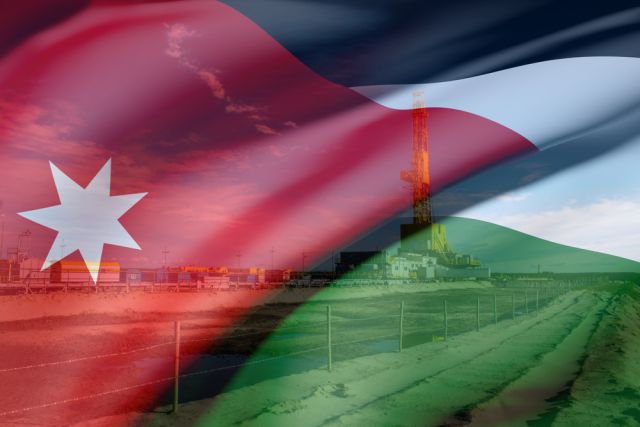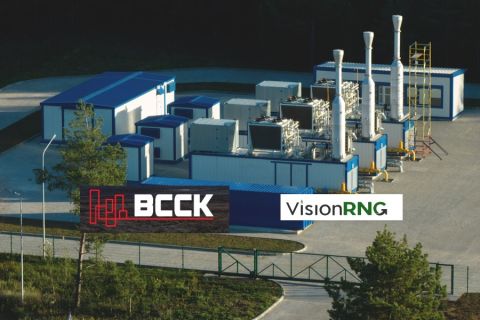
Source: Shutterstock
Jordan has revived plans to increase its gas production to meet growing local consumption following successful drilling of a new well at the Al Risha gas field east of Jordan near the border with Iraq.
Initial results from Well 48, drilled by National Petroleum Co. (NPC), at the field are very encouraging, Minister of Energy and Mineral Resources Hala Zawati said in an interview with Jordanian national TV. “The well is still under assessment, but the initial results are very promising,” Zawati said, later adding increasing production is on the right track.
Well 48 produces about 7 million cubic feet of gas per day, while the field’s 14 other wells produce about 9 MMcf/d combined for a total of 16 MMcf/d, she said. However, Zawati added that’s is not a big number, considering Jordan consumes 330 MMcf/d, “but it is promising.”
The Risha gas field was discovered in September 1986 and commenced production from the Ordovician Dubaydib Formation in May 1989. The field had initial recoverable gas reserves of 215 billion cubic ft (Bcf), and has so far produced about 65 Bcf. Production originally was from the Northern Area, main Risha area and Risha 8 pool.
The Southern Area comprises three gas pools, Risha 23, 26, and 28. Production began from these pools in August 2003 after they were connected to the northern area facilities via a 16-in. 51-km pipeline. By August 1997 daily gas output had increased from 27 MMcf/d to 30 MMcf/d. “Since then, production started declining as producing wells were depleting. It reached 9 MMcf/d during early this year,” Zawati said.
The energy minister also said that the recent drilling success resulted from “the efforts and expertise of Jordanian employees working at the NPC, which was established mainly to oversee the development of Richa field.”
Following the success of Well 48, NPC started drilling about 1,200 m away at Well 49. Work is set to be completed within three months. She credited previous partner, BP, for generating seismic data that helped.
In 2009, BP was given up to four years to spend at least $237 million to explore and evaluate the Al Risha Block, which spans 7,000 sq km. In 2011, BP announced the acquisition of 5,000 sq km of seismic data. BP said at the time that the seismic survey “was one of the largest ever acquired in the Middle East and one of the safest and highest-productivity surveys acquired in BP history.”
But after spending nearly $240 million and drilling two exploration wells, BP deemed the results too poor to continue in Jordan and handed the drilling results to NPC in 2014.
Zawati said gas produced from the Risha field feeds a nearby power generation station, mainly used for local consumption. But the plant produces less than its 20-megawatt capacity due to the lack of natural gas, she added.
While the new discovery is not huge, the minister said it helps reduce dependency on gas imports.
Looking ahead, Zawati said Jordan is interested in reviving its oil sector with the hope of meeting soaring local demand. The minister was referring to the Hamzah oil field in Al Azraq, which started production in 1985, and produces less than 20,000 barrels of oil per day (bbl/d). The eastern region of Jordan, she said, is hydrocarbon-rich . “We have a number of promising oil fields that needs rehabilitation in Hamzah, and NPC is working on rehabilitating drilled wells to increase oil production, and we may also need to drill more wells to increase production,” she said.
In addition, Jordan is set to launch an E&P bid round that covers several blocks across the country. “North Area, Al Safawi, Al Sarhan, Dead Sea, Al Jafawi are the areas that we are targeting with exploration activities,” Zawati said. “These are promising areas, and we plan to launch some blocks for bid round.”
The minister said some foreign partners have already expressed interests in some blocks.
“There are two blocks that are targeted by [a] company, and we are in discussion with them,” she noted.
Speaking about shale oil, Zawati said that developing Jordan’s shale resources is an important part of the national energy strategy, where it considers both shale oil extraction and oil shale combustion for thermal power generation. “We have four firms working on shale oil, including Shell, which owns Jordan Oil Shale Company B.V (JOSCO),” she said. JOSCO signed a concession agreement the energy ministry for deep shale oil exploration covering 22,270 sq km.
The main objective for companies working on shale oil reserves is to find the right technology to monetize these resources, Zawati said.
“So far, Karak International Oil (KIO) has managed to find the right feasible technology and [is] currently working on finding the financing to develop the technology,” she said.
Karak International Oil (KIO) signed a memorandum of understanding with Jordan’s NOC in March 2011, covering an area of 33 sq km in Al-Lajjun area, using Canadian Technology ATP. It is expected that KIO will produce up to 50,000 bbl/d.
Recommended Reading
NextEra Energy Dials Up Solar as Power Demand Grows
2024-04-23 - NextEra’s renewable energy arm added about 2,765 megawatts to its backlog in first-quarter 2024, marking its second-best quarter for renewables — and the best for solar and storage origination.
BCCK, Vision RNG Enter Clean Energy Partnership
2024-04-23 - BCCK will deliver two of its NiTech Single Tower Nitrogen Rejection Units (NRU) and amine systems to Vision RNG’s landfill gas processing sites in Seneca and Perry counties, Ohio.
Clean Energy Begins Operations at South Dakota RNG Facility
2024-04-23 - Clean Energy Fuels’ $26 million South Dakota RNG facility will supply fuel to commercial users such as UPS and Amazon.
Romito: Net Zero’s Costly Consequences, and Industry’s ‘Silver Bullet’
2024-04-22 - Decarbonization is generally considered a reasonable goal when presented within the context of a trend, as opposed to a regulatory absolute.
Energy Transition in Motion (Week of April 19, 2024)
2024-04-19 - Here is a look at some of this week’s renewable energy news, including the latest on global solar sector funding and M&A.





